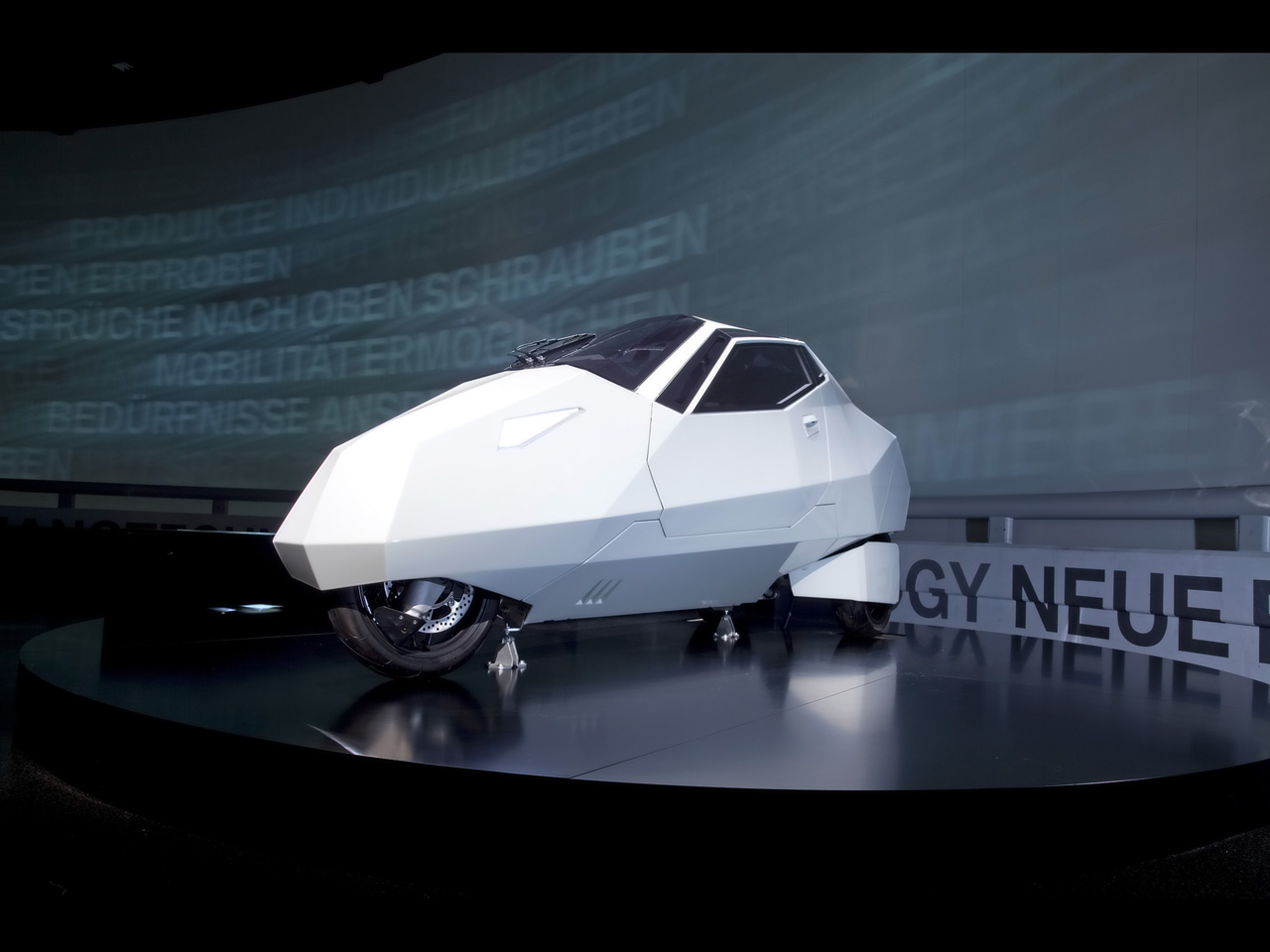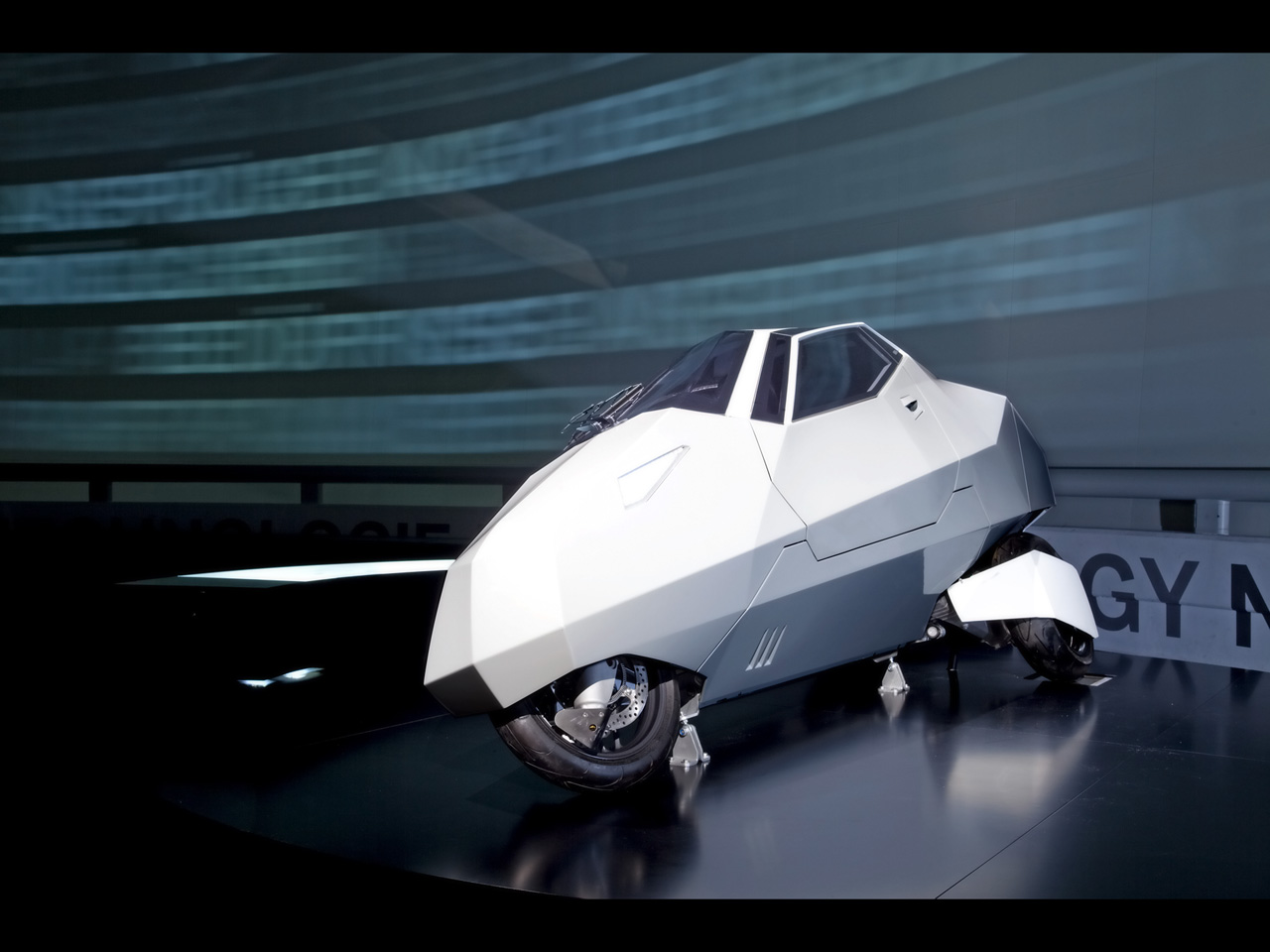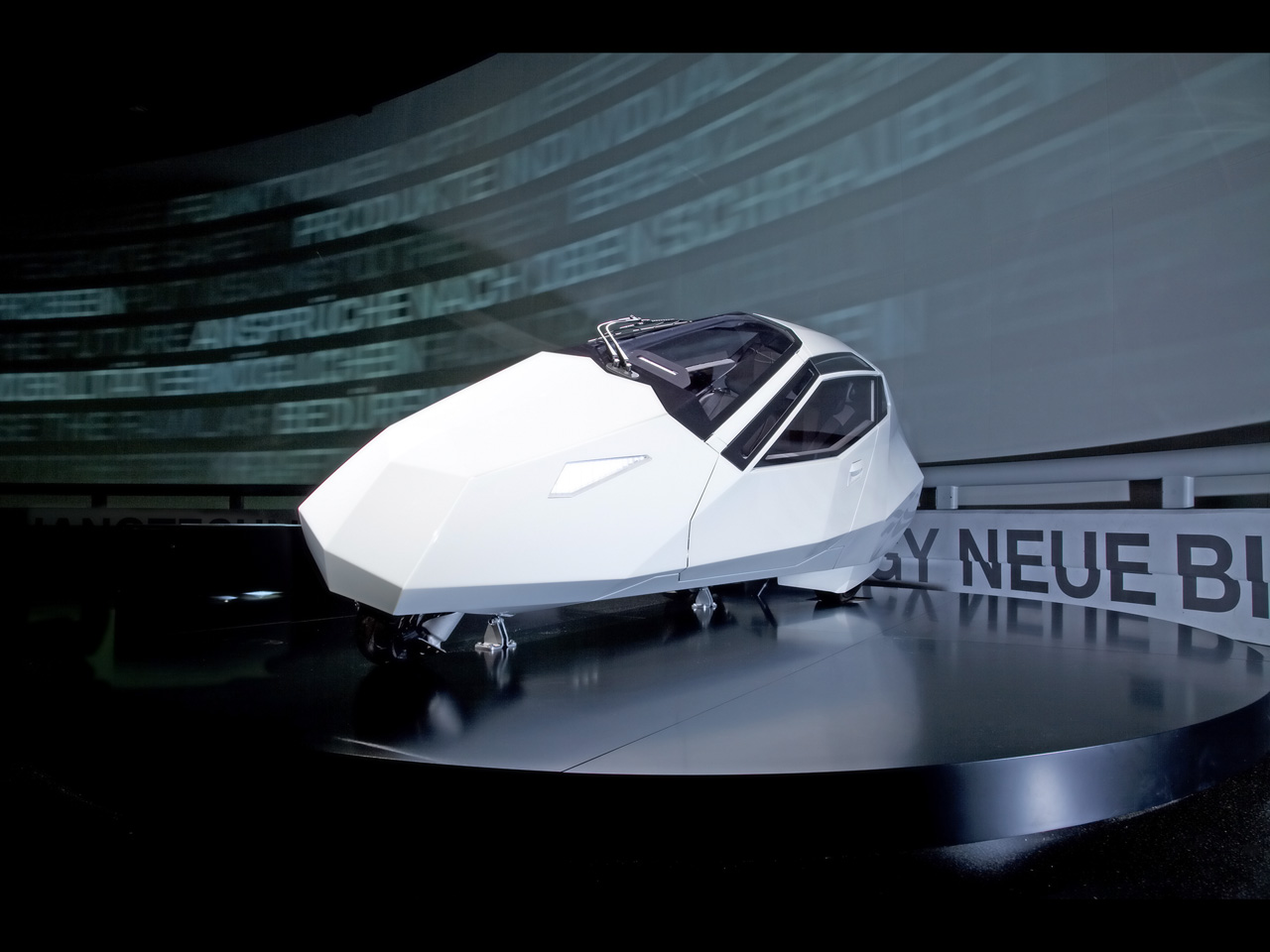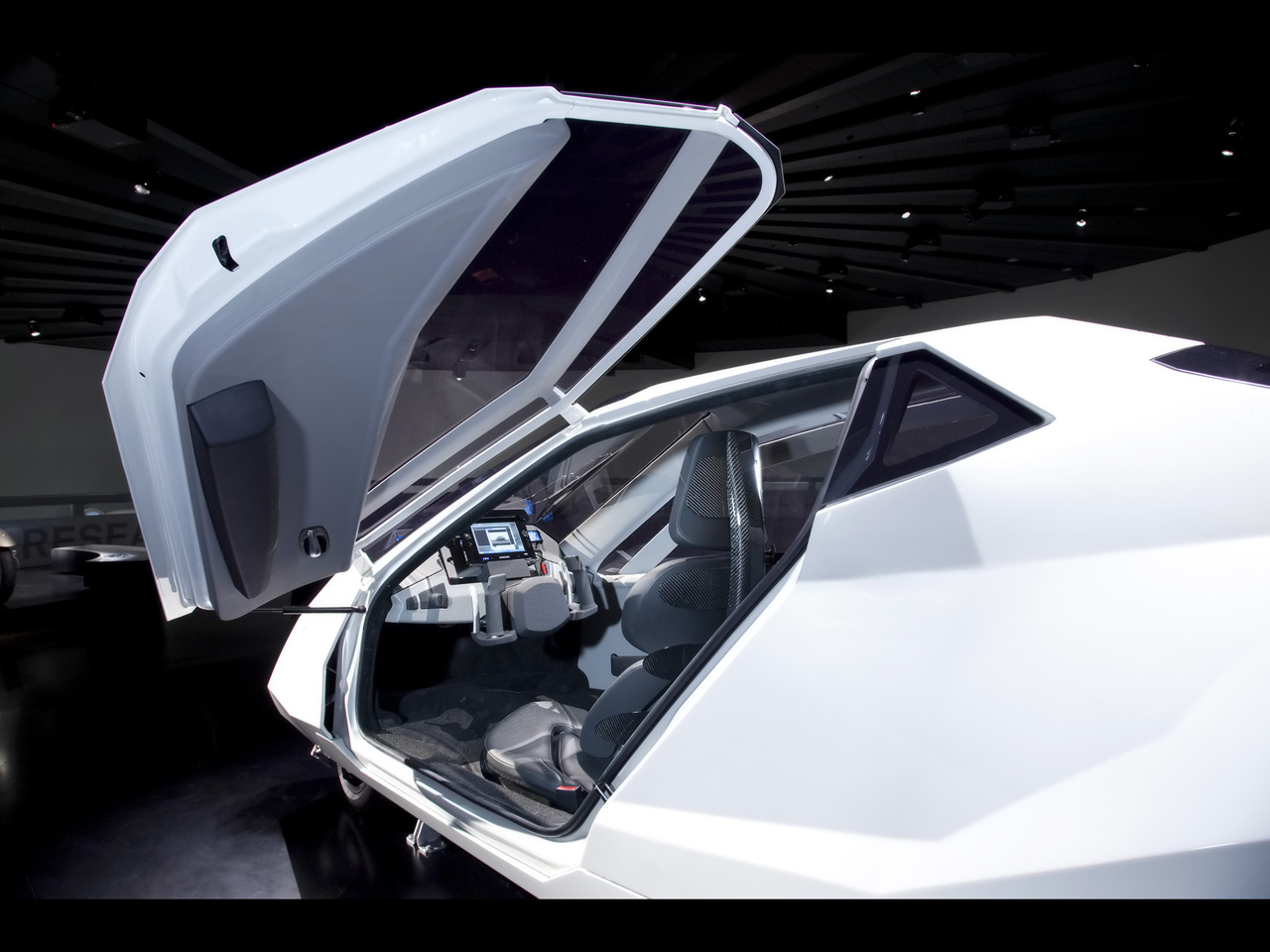2005 BMW Simple Concept
|
Price |
-- |
Production |
-- | ||
|
Engine |
-- |
Weight |
992 lbs | ||
|
Aspiration |
-- |
Torque |
-- | ||
|
HP |
48 hp |
HP/Weight |
-- | ||
|
HP/Liter |
-- |
1/4 mile |
-- | ||
|
0-62 mph |
-- |
Top Speed |
-- |
(from BMW Press
Release) SIMPLE – light in weight, low on energy
Simple combines features and advantages from both automobiles and
motorcycles. The concept owes its passenger cell to the car,
providing protection from wind and weather as well as shielding the
driver from exterior noise and offering occupants a high degree of
safety in the event of an accident. The motorcycle inspired the slim
design of the Simple (at just 110 centimetres wide) and its
configuration for two people sitting one behind the other. Plus it
boasts the dynamic driving style typical of a two-wheeler, allowing
you to lean right into corners as desired. The designation “simple”
is an acronym of the project name “A sustainable and innovative
mobility product for low energy consumption”.
The BMW designers initially planned a small vehicle with low weight
and minimal aerodynamic drag properties. Following a concept phase
of several months, the pooled requirements and ideas gave rise in
2005 to a vehicle based on tilting technology. In contrast to other
vehicle concepts in which only the passenger cell tilts during
cornering, here all the driver has to do is determine a change in
direction for the appropriate tilt to follow automatically. The
stand-out feature of the Simple concept is that it activates the
hydraulics only in exceptional situations, for example if the
vehicle threatens to become unstable during extremely slow driving,
when righting the vehicle during standstill or in extreme situations
such as drifting. Otherwise, Simple rides like a motorcycle and,
beyond natural gravity and gyroscopic forces, requires no energy
whatsoever to lean into a corner. The passenger also benefits from
this tilting technology as he feels no transverse forces and,
particularly during rapid changes of direction, need not compensate
for any lateral movements.
All that is needed to power this lightweight vehicle with a kerb
weight of approx. 450 kg is a 36 kW combustion engine. Acceleration
from 0 to 100 km/h is estimated at under ten seconds and the vehicle
has an excellent drag coefficient of 0.18. Using the electric motor
and the combustion engine, the Simple would need just 6 kWh
(equivalent to 0.7 litres of petrol) or two litres over 100 km.



